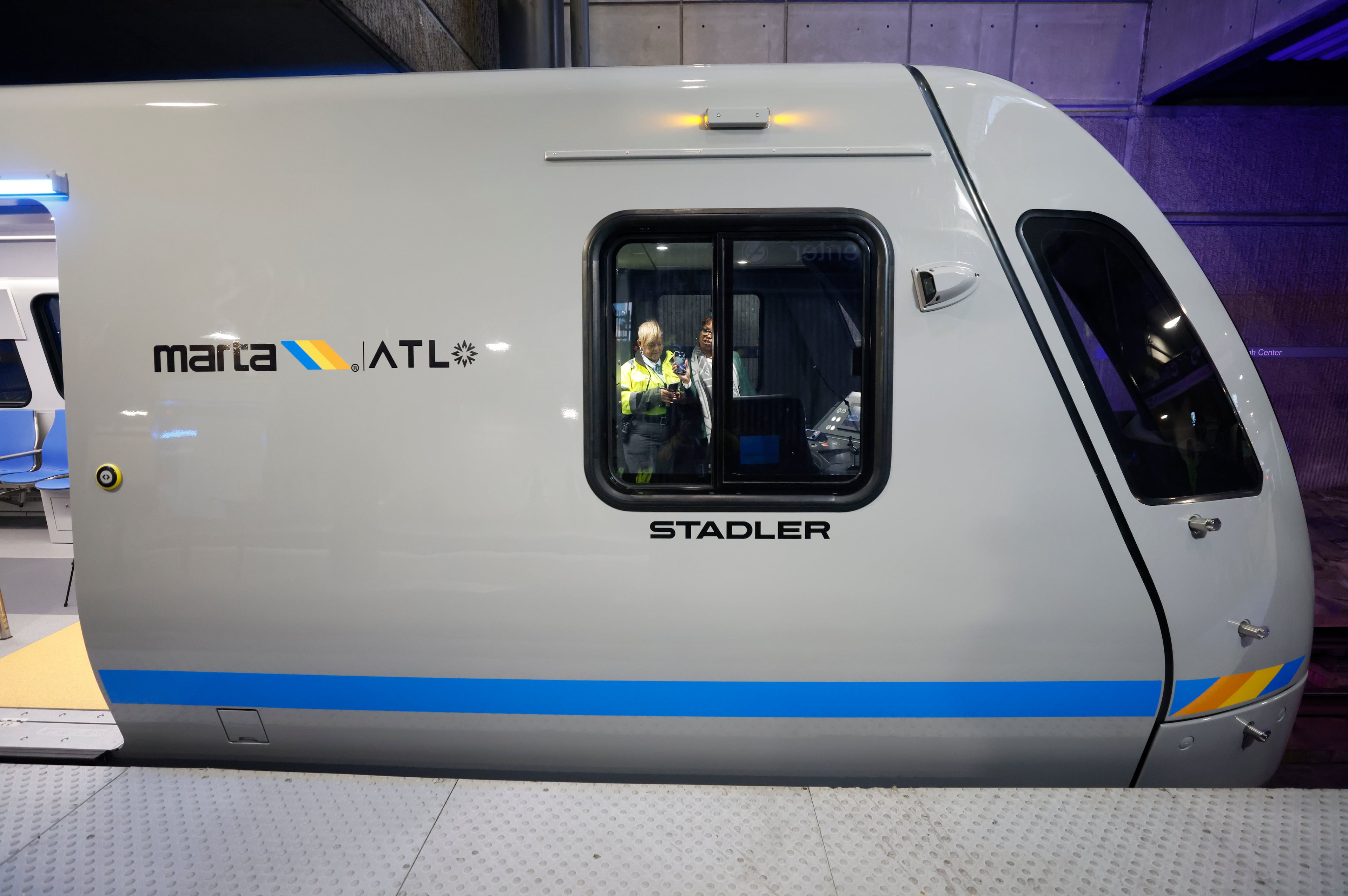As World Cup nears, Georgia tourism industry pushes for more state money

Score a goal, get a scarf. An Atlanta 2026 World Cup soccer scarf.
That’s how Explore Georgia, the state’s tourism marketing arm, promoted Atlanta’s share of the world’s biggest sporting event at the nation’s biggest international travel trade show.
The soccer ball and net proved a draw with travel planners and agents, corporate travel managers and travel journalists and influencers. Explore Georgia’s exhibit was the talk of the show.
“When you can sell your state by tying it to an event like the World Cup, you are going to win every time,” said Mike Vescio, a tourism marketing pro with Discover DeKalb.

The first of Atlanta’s eight World Cup soccer matches kicks off June 15 at Mercedes-Benz Stadium. With it comes a chance to showcase Georgia to international travelers visiting for the tournament.
But the state government is frugal when it comes to tourism marketing expenditures. The tourism industry, backed by some lawmakers, is pushing for more Explore Georgia funds as the tournament arcs toward Georgia like a well-struck corner kick.
Compared to the rest of the states in the Southeast, Georgia is last in tourism promotion, at less than $6 million a year, according to budget data from the states. The Smoky Mountain town of Gatlinburg, Tennessee invests more annually on destination marketing than Georgia does.
A state Senate study committee met last week ahead of the annual Governor’s Tourism Conference and lawmakers closed the meeting by acknowledging that Explore Georgia, an arm of the Georgia Department of Economic Development, is being shortchanged.
“We need to find ways to spend more money on tourism marketing,” said Sen. Russ Goodman, R-Clogdell, a study committee member.
The General Assembly will likely need to get creative to find those dollars. The state does not have a hotel-motel tax, and the $5 state hotel-motel fee goes to the Department of Transportation for roads and interstate visitor information centers.

And Gov. Brian Kemp did not commit to a bump in his coming budget proposals. He’s invested significantly in convention centers to woo conferences and business travelers, including at the site of last week’s conference, the Savannah Convention Center. That facility recently underwent a $276 million expansion.
But asked about tourism marketing funding ahead of his conference address, Kemp said “our tourism dollar has gone a long way, and we’re getting a lot of value” while also pointing out that tourism marketing, like soccer, is a team game.
“It’s not just the state’s job to market, it’s individual companies, individual (convention and visitors bureaus), local tourism folks,” he said. “We’re all in this game together, and we’ll certainly do our part in state government.”
Teaming up for success
There are many players in Atlanta’s World Cup marketing game.
The Atlanta Sports Council, an arm of the Metro Atlanta Chamber, is the star, with the Atlanta Convention and Visitors Bureau, Explore Georgia and stadium operator AMB Sports & Entertainment as important role players. Many of the state’s local destination marketing organizations, such as Destination DeKalb and Visit Savannah, are contributing.
Promotion plans are ongoing as Atlanta won’t learn which four national teams it will host for the preliminary round, known as the group stage, until December. Marketers will concentrate their efforts in those countries as their teams — and their fans — will be in Georgia for at least 13 days, with plenty of time between matches to visit Atlanta attractions and make daytrips around the state and region. Atlanta will also host games in the knockout rounds, including a semifinal, but won’t know which teams will advance ahead of time.

Explore Georgia, pointing to data that overseas travelers typically spend six to seven times more than domestic visitors, rolled out its “Make yourself at home in 2026” tagline for the international travel trade show.
It is already part of display ads currently appearing on stadium and rail station billboards in London and online ads across soccer-mad United Kingdom. An Explore Georgia-led delegation will also appear at Travel Week UK and Europe, a trade conference, later this month.
“We want to make Georgia the home base for international travelers who come to the U.S. for the tournament,” said Jay Markwalter, the state’s deputy commissioner of tourism. “We see the World Cup as a powerful launch pad for international tourism in the future. International marketing is a long game.”
Where to find more tourism marketing dollars
Georgia ranks 7th nationally in visitor spending despite its low travel marketing investment. In a presentation to the Senate study committee, Visit Savannah’s Joe Marinelli showed data that the organization’s marketing dollars generate a $394 for every $1 spent.
He showcased tourism marketing campaigns by two state tourism departments that have become familiar across the nation in recent years: “Pure Michigan” and West Virginia’s “Almost Heaven.”
Michigan’s campaign, which launched in 2006 with a goal of convincing Michiganders to stay in state for vacation, has grown from a $5 million annual investment to $40 million with promotion across the country and world. West Virginia started “Almost Heaven” more recently — 2017 — but has tripled its original spend.
“They found that new state tax revenue from visitors exceeded the campaign’s costs — the campaigns paid for themselves,” Marinelli said. “That’s the kind of return we should expect.”

Funding sources remain the challenge. Ideas discussed by the Senate study committee included a state hotel-motel tax and designating a portion of the existing $5 state hotel-motel fee to go toward tourism marketing spend. That fee, enacted in 2015, has exceeded revenue goals every year save for 2020, when the COVID-19 pandemic halted most travel.
Putting the surplus toward tourism marketing was an option popular with the lawmakers. But that tactic would mean fewer dollars for the fee’s current beneficiary, the Department of Transportation.
Sen. Frank Ginn, R-Danielsville, said the key would be to convince DOT officials that giving up fee dollars would benefit them in other ways.
“I’m thinking that (spending more on marketing) will drive more tourism to the state, which means more gas tax for DOT and more hotel rooms and thereby more revenue from the fee,” Ginn said. “The question is, can it generate enough to offset what the DOT would be losing?”
Correction
This story has been updated to correct Sen. Russ Goodman’s role on the state Senate study committee on tourism.


